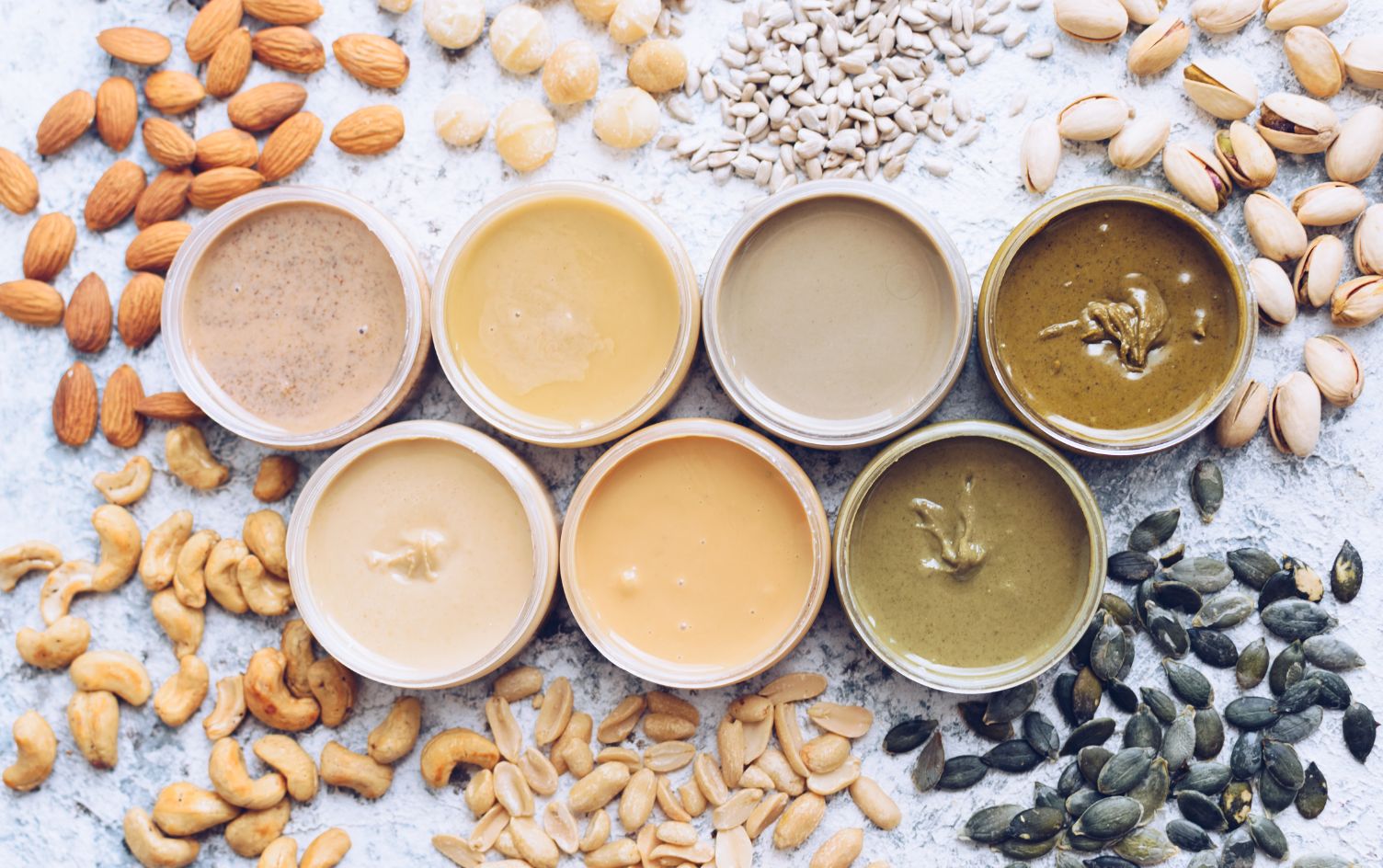If you’re eager to eat more plant-based protein, consider adding nut butter to your menu. These healthy spreads are brimming with vitamins and minerals, and they’re available in enough flavors to appeal to nearly every palate.
“The variety of nut butters allow us to have more options, resulting in a greater variety of nutrients in our diet,” says Katie Hake, RD. If you don’t love peanut butter and jelly sandwiches, there are plenty of other ways to eat nut butter. You can bake with it, add it to smoothies, soups and more.
Some research has shown nut butter consumption is associated with a lower risk of Type 2 diabetes in women. Other research found people who regularly consume nuts have a lower risk of heart disease. While the nutritional profile of each nut butter varies depending on its main ingredient, all forms can be beneficial to your health (for those who don’t have allergies).
“Nut butters provide healthy fats, vitamins, minerals and plant-based compounds important for good health,” says Marie Spano, MS, RD, sports nutritionist for the Atlanta Braves, Atlanta Hawks and Atlanta Falcons. And a little goes a long way since nut butters average about 200 calories per 2 tablespoon serving.
When you’re at the grocery store and trying to look for the healthiest option, keep in mind you should look for ones that “have the shortest list of ingredients, because our bodies can process them better,” says Sandra Arévalo, RD, a New York-based spokesperson for the Academy of Nutrition and Dietetics. Try to find a brand that doesn’t have added sugar, sodium or other additives.
Here, RDs weigh in on seven great nut butters to include in your diet:
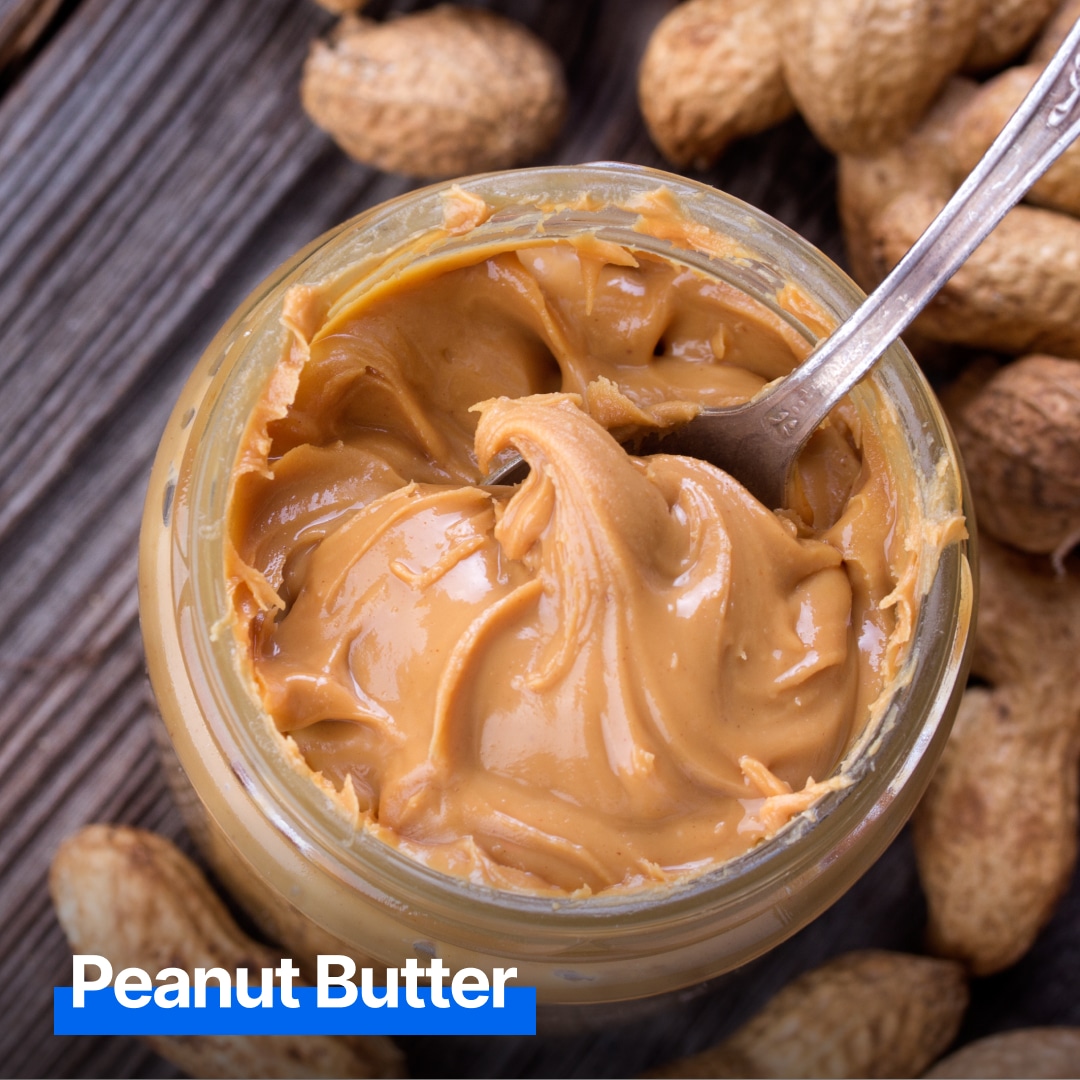
This tried-and-true product isn’t technically a nut butter, since peanuts are considered legumes. Nonetheless, it’s the most commonly consumed nut butter in the U.S., with the longest history on supermarket shelves. It holds a distinction among the nut butters: “Peanut butter tends to be the highest in protein, compared to its competitors,” says Hake. It’s also rich in vitamin E, vitamin B6 and a number of minerals, including magnesium and potassium. “It can help combat cholesterol and improve conditions such as anemia [and] heart disease,” says Arévalo. It’s also super versatile, making it easy to pair with something like a banana for a well-balanced snack.
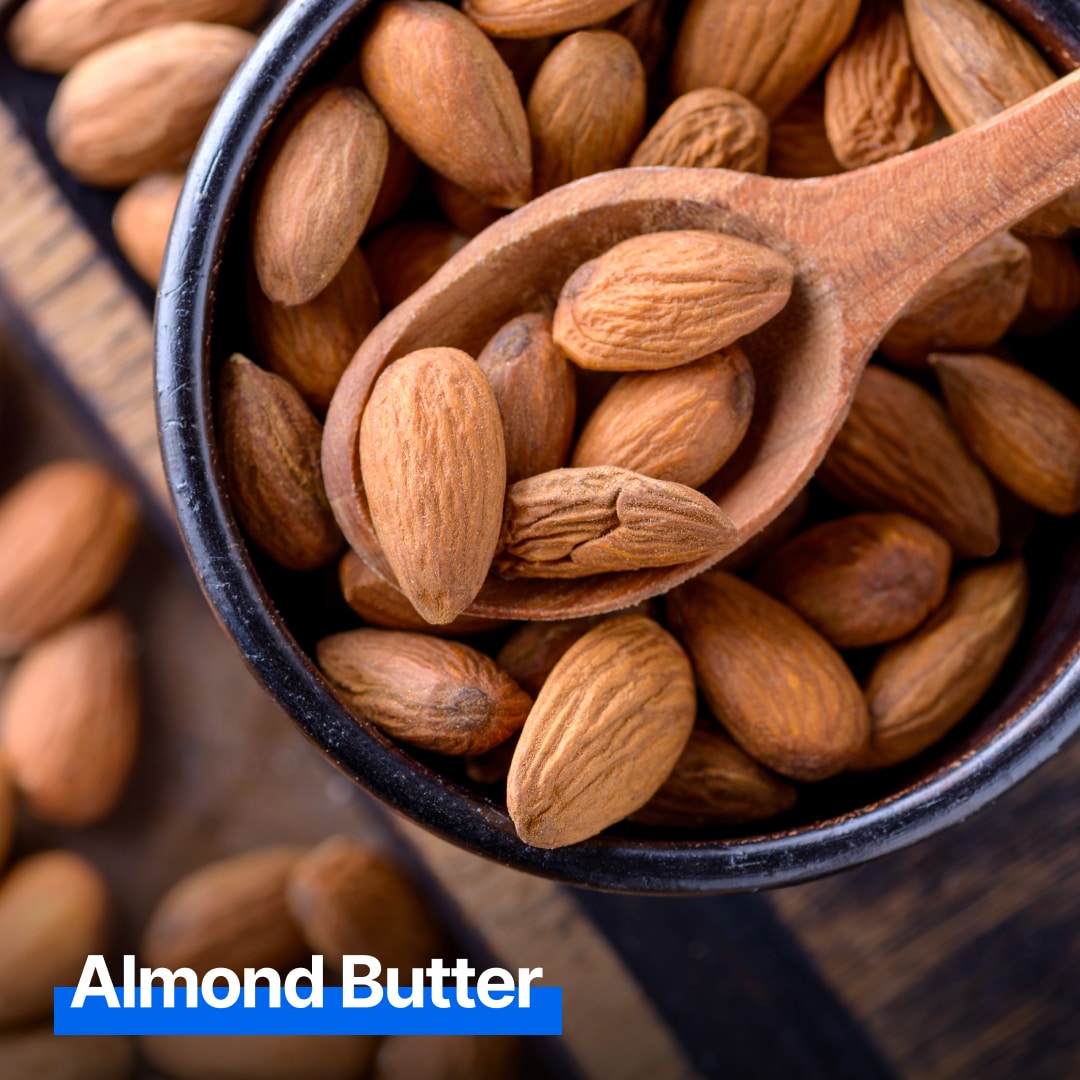
“Almond butter has become more popular over the years, due to its more unique texture and taste,” says Hake. “Just two tablespoons can provide important minerals like calcium, iron, magnesium and potassium.” It’s also rich in vitamin E, “which is great for the maintenance of healthy skin, and contains copper and phosphorus which help improve bone strength,” adds Arévalo.
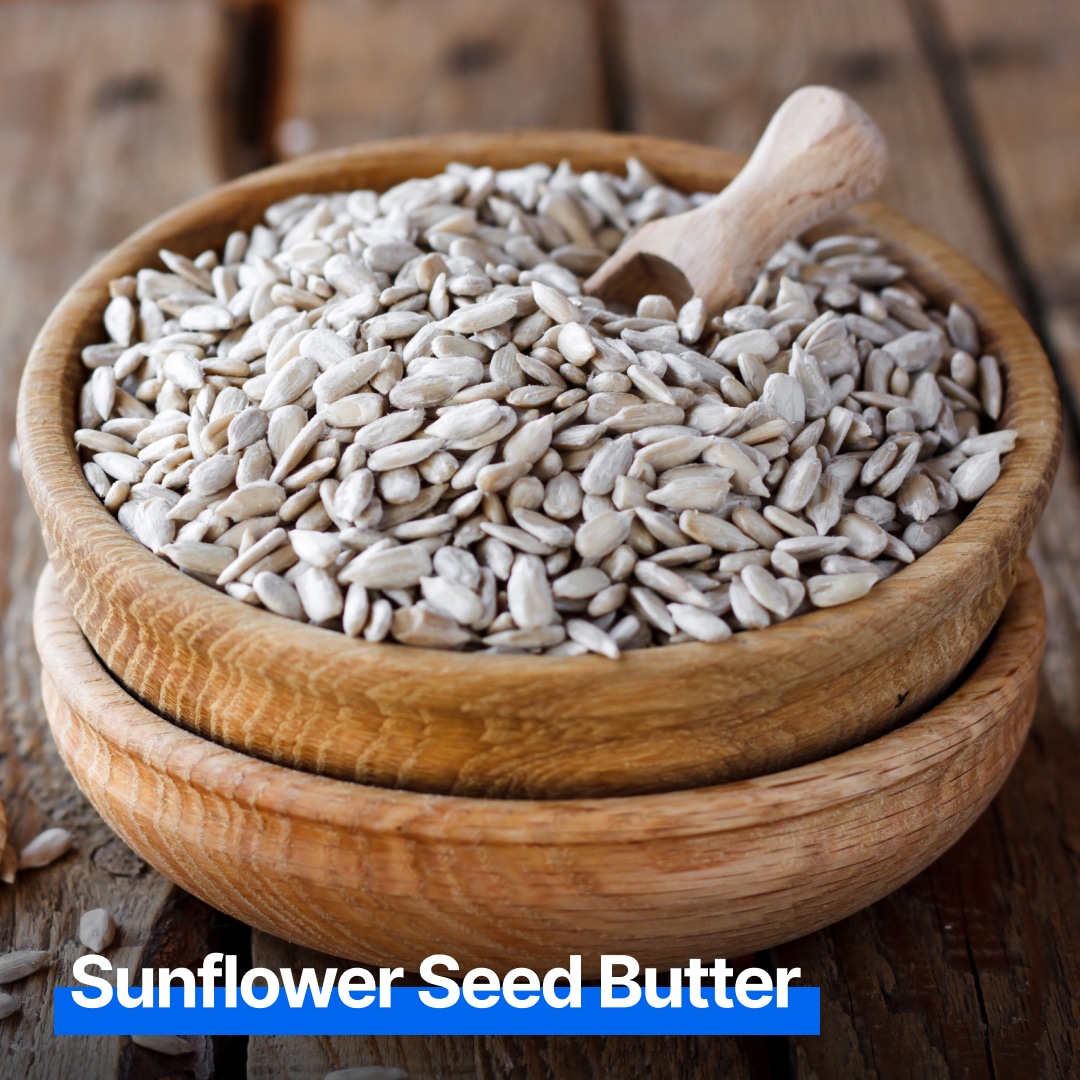
Although it’s technically a seed, this spread is “a great option for those with tree nut or peanut allergies,” says Spano. “It’s an excellent source of pantothenic acid, magnesium, phosphorus, copper and manganese. It is also a good source of protein, folate and zinc.”
What’s more, sunflower seed butter may be particularly beneficial for women. “Sunflower seeds have high amounts of B6 and magnesium that have been linked to reduction of cardiovascular disease, menstruation difficulties and premenstrual syndrome,” explains Arévalo.
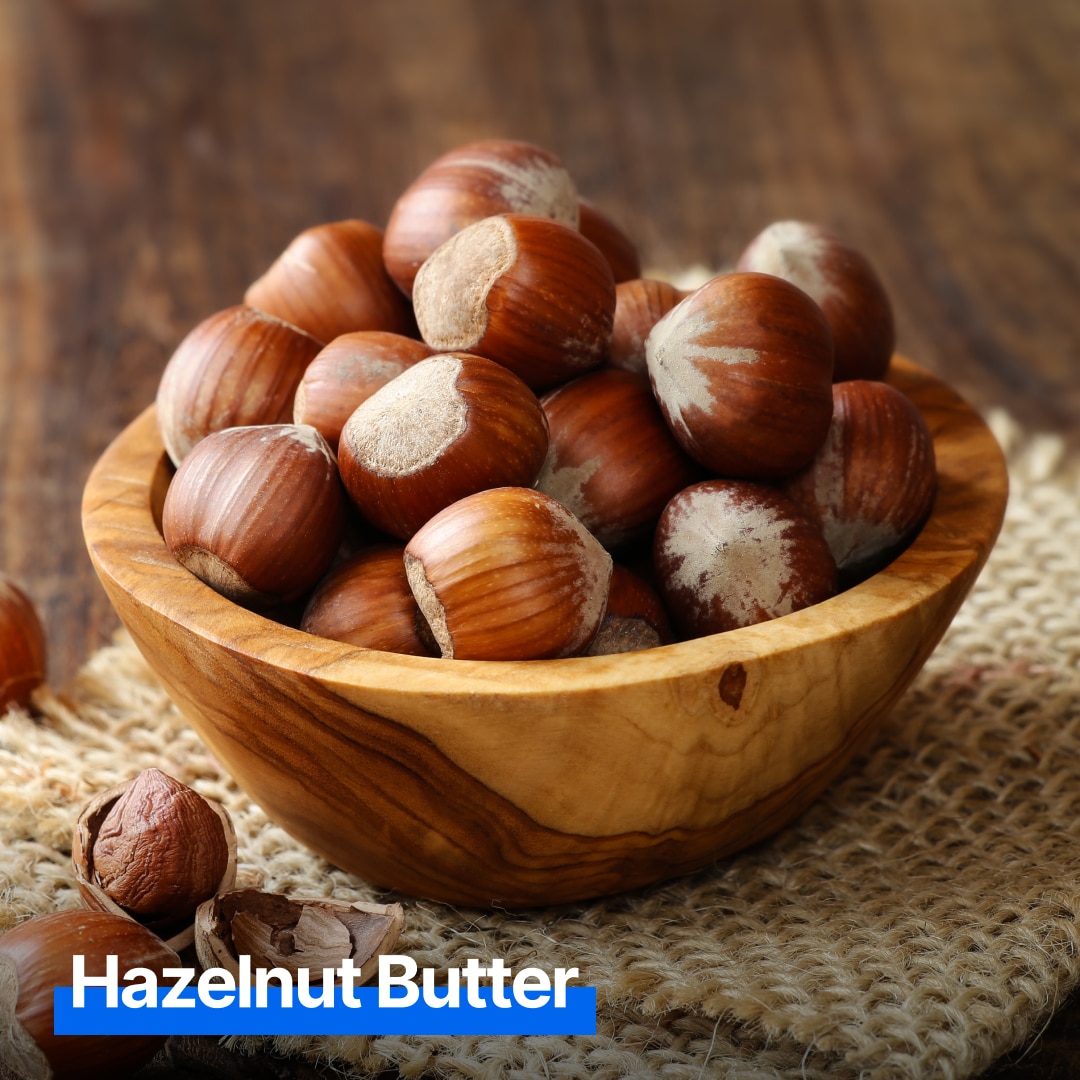
When you think hazelnut, you may be tempted to reach for a jar of Nutella. Instead, look for natural varieties without the chocolate, salt and excess sugar. “Hazelnut butter is an excellent source of vitamin E, copper and manganese and also contains thiamin and magnesium,” says Spano.
This nut butter is also rich in folic acid and potassium, which “aids the production of hormones and helps reduce the risk of certain cancers,” Arévalo says. “It can even help reduce high blood pressure.”
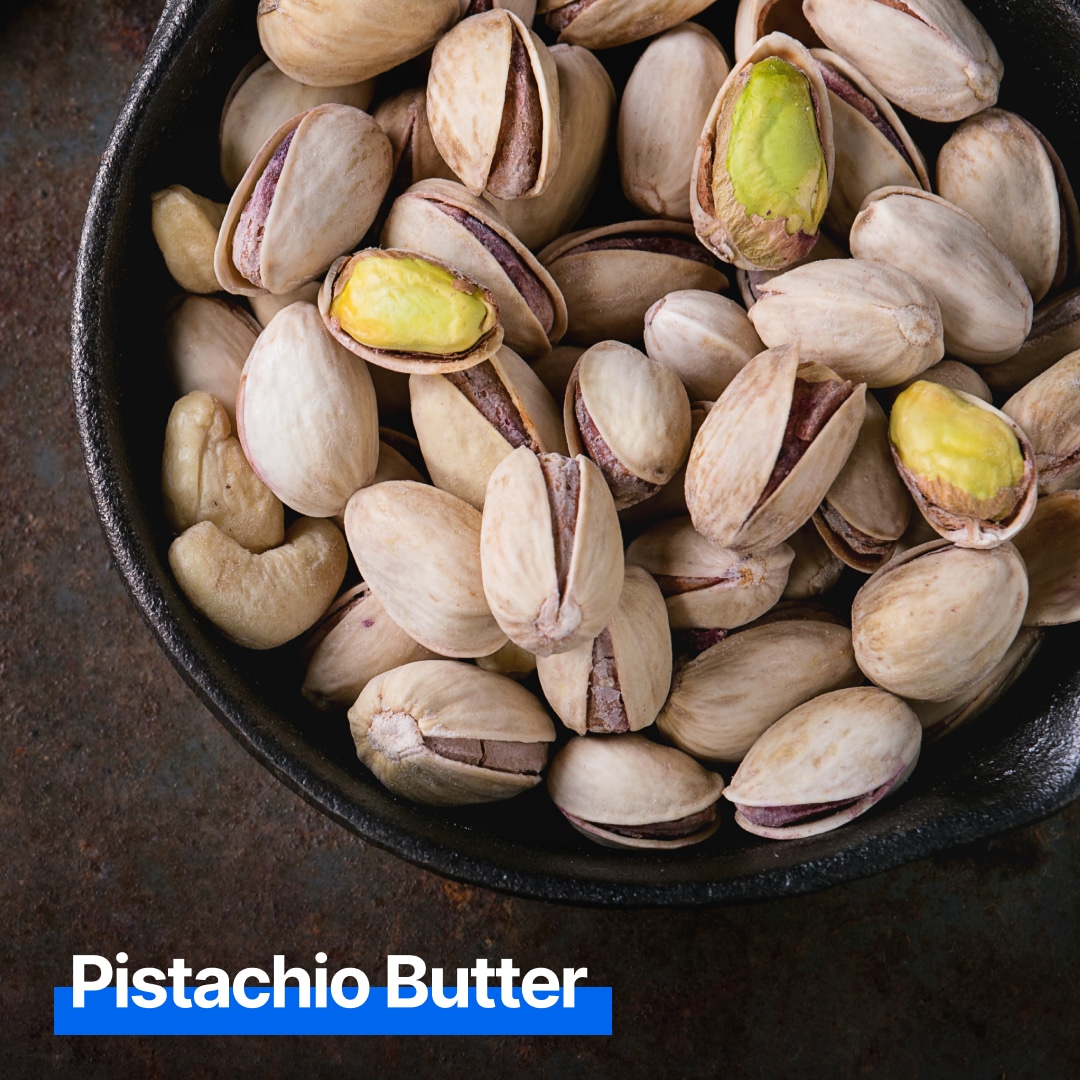
If you’re looking for a lower-calorie option, try pistachio butter. “It’s a good source of protein and lower in fat than most other butters,” says Spano. “It also contains thiamin, vitamin B6, phosphorous, copper and manganese.”
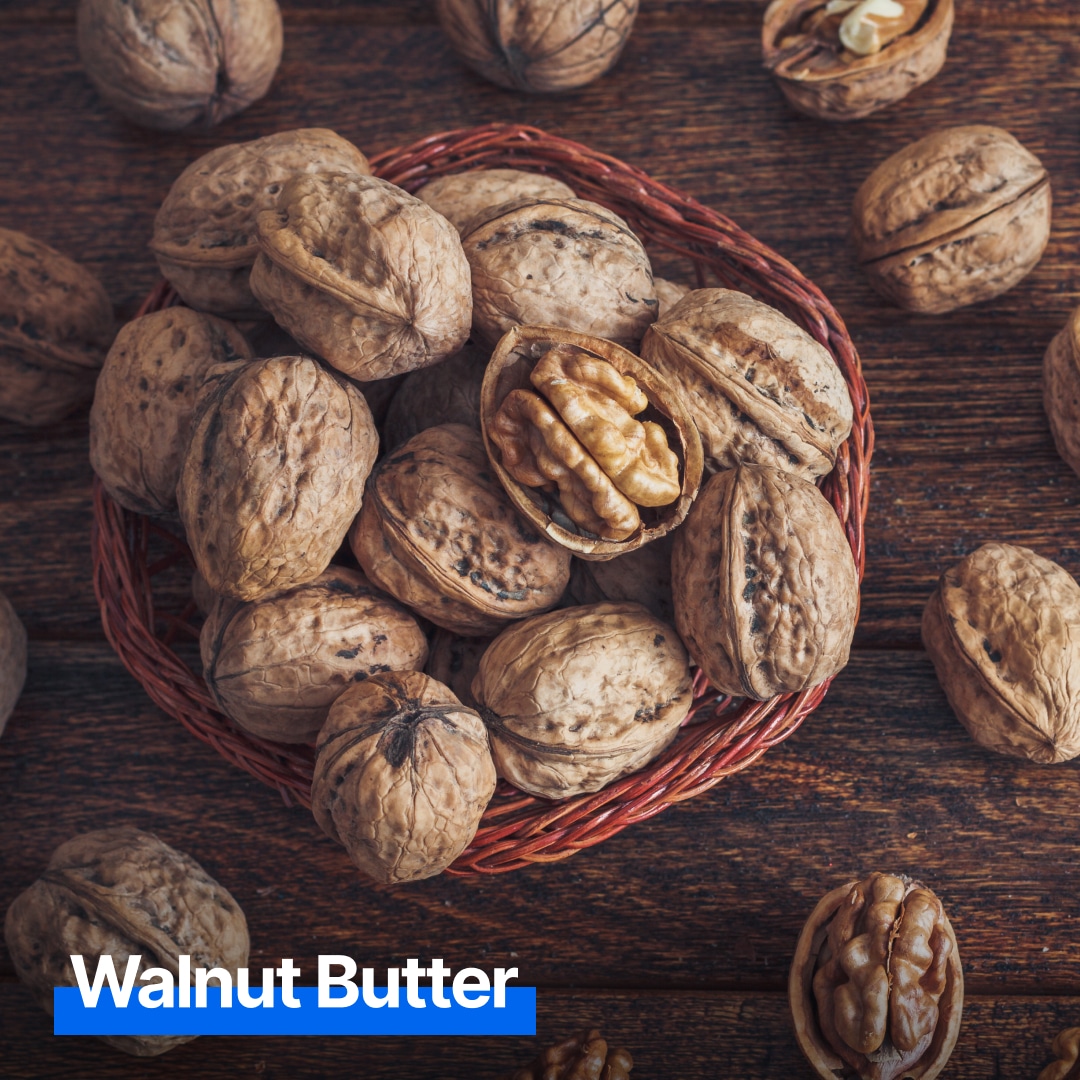
“Walnut butter contains the highest amounts of omega-3 fatty acids, which are beneficial to both brain and heart health,” says Hake. It can have a creamier, thicker texture compared to other nut butters, but pairs nicely with spices like cinnamon.
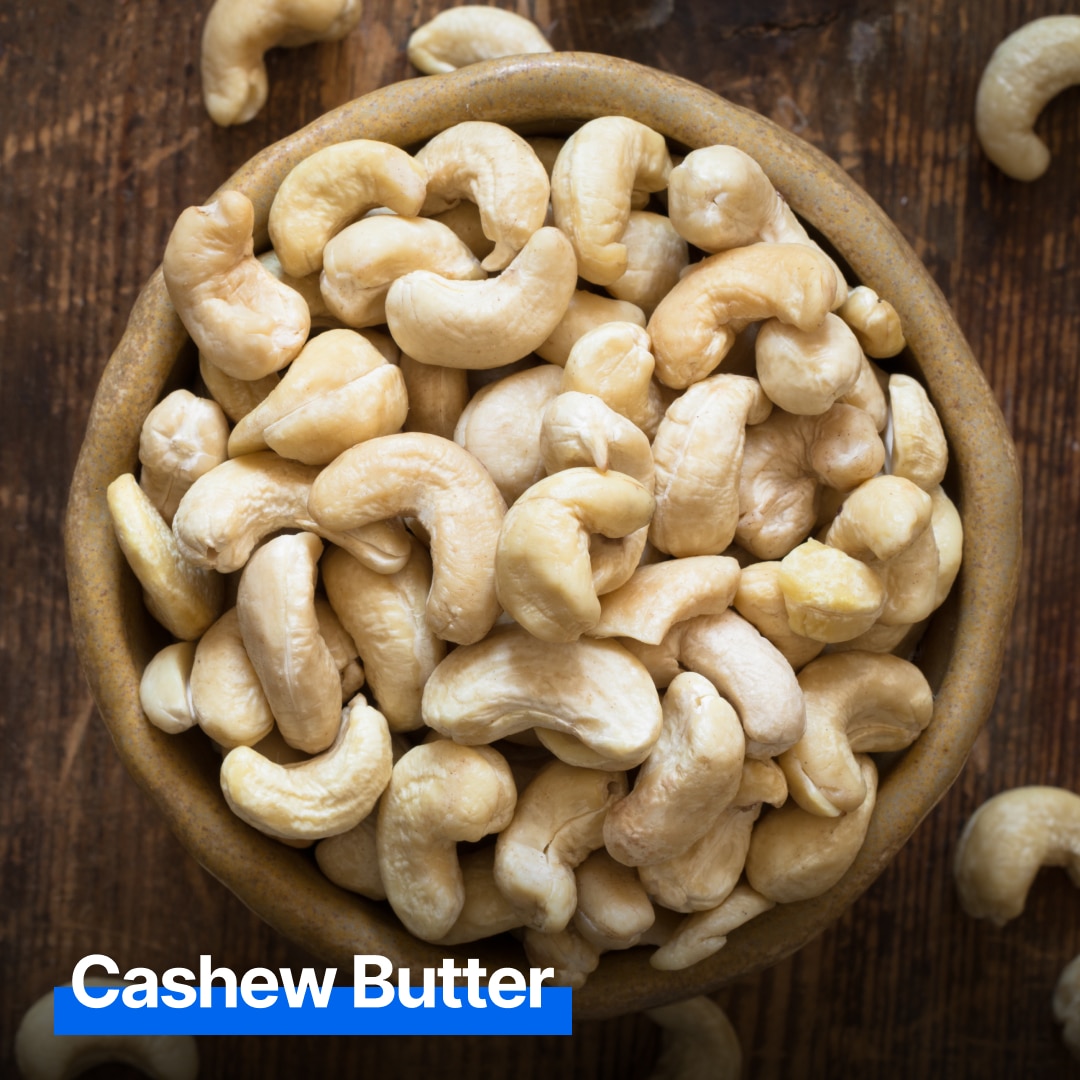
“Cashews are rich in many B vitamins like B12, B1 and B5, which help correct metabolic disorders,” says Arévalo. “Pay attention to how much you consume though, because it is the highest in calories.”
Originally published July 2019, updated August 2022
Ready to take the next step? Unlock MyFitnessPal Premium to access custom goal settings, quick-log recipes, and guided plans from a registered dietitian. Premium users are 65% more likely to reach their weight loss goals!
